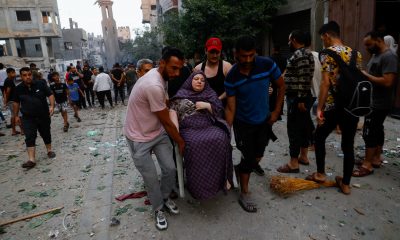KABUL, Afghanistan – The American military released a scathing report on Saturday on the deaths of 23 Afghan civilians, saying that “inaccurate and unprofessional” reporting by a team of Predator drone operators helped lead to an inadvertent airstrike this year on a group of innocent men, women and children.
The report said that four American officers, including a brigade and battalion commander, had been reprimanded, and that two junior officers had also been disciplined. Gen. Stanley A. McChrystal, who apologized to President Hamid Karzai after the attack, announced a series of training measures intended to reduce the chances of similar events.
The episode, in which three vehicles were attacked and destroyed in February, illustrated the extraordinary sensitivity to the inadvertent killing of noncombatants by NATO forces. Since taking command here last June, General McChrystal has made the protection of Afghan civilians a priority, and he has sharply restricted the use of airstrikes.
The overwhelming majority of civilian deaths in Afghanistan are caused by insurgents, but the growing intensity of the fighting, and the big push by American and NATO forces, has sent civilian casualties to their highest levels since 2001. General McChrystal’s concern is that NATO forces, in their ninth year of operations in Afghanistan, are rapidly wearing out their welcome. Opinion polls here appear to reflect that.
“When we make a mistake, we must be forthright,” General McChrystal said in a statement. “And we must do everything in our power to correct that mistake.”
The civilian deaths highlighted the hazards in relying on remotely piloted aircraft to track suspected insurgents. In this case, as in many others where drones are employed by the military, the people steering and spotting the targets sat at a console in Creech Air Force Base, Nev.
The attack occurred on the morning of Feb. 21, near the village of Shahidi Hassas in Oruzgan Province, a Taliban-dominated area in southern Afghanistan. An American Special Operations team was tracking a group of insurgents when a pickup and two sport utility vehicles moving through the area began heading in their direction.
The Predator operator reported seeing only military-age males in the truck, the report said. The ground commander concurred, the report said, and the Special Operations team asked for an airstrike. An OH-58D Kiowa helicopter fired Hellfire missiles and rockets, destroying the vehicles and killing 23 civilians. Twelve others were wounded.
The report, signed by Maj. Gen. Timothy P. McHale, found that the Predator operators in Nevada, as well as the ground commander in the area, made several grave errors that led to the airstrikes. The “tragic loss of life,” General McHale found, was compounded by the failure of the ground commander and others to report in a timely manner that they might have killed civilians.
“The strike occurred because the ground force commander lacked a clear understanding of who was in the vehicles, the location, direction of travel, and the likely course of action of the vehicles,” General McHale wrote.
That fatal lack of understanding, General McHale wrote, stemmed from “poorly functioning command posts” in the area that failed to provide the evidence that there were civilians in the trucks. In addition, General McHale blamed the “inaccurate and unprofessional reporting of the Predator crew operating out of Creech A.F.B., Nevada, which deprived the ground force commander of vital information.”
Because of that, General McHale said, the officer on the ground believed that the vehicles, then seven miles away, contained insurgents who were trying to reinforce the fighters he and his men were tracking.
Predator drones contain powerful cameras that beam real-time images to their operators. In Afghanistan and Pakistan, Predators and other such aircraft are often used to track and kill suspected insurgents, sometimes with their own missiles. The C.I.A. operates its own drone operation separate from the military’s.
In this case, the military Predator operators in Nevada tracked the convoy for three and a half hours but failed to notice any of the women who were riding along, the report said. The report said that two children were spotted near the vehicles, but the drone operators reported that the convoy contained only military-age men.
“Information that the convoy was anything other than an attacking force was ignored or downplayed by the Predator crew,” General McHale wrote.
Immediately after the initial attack, the Kiowa helicopter’s crew spotted brightly colored clothing at the scene, and, suspecting that civilians might have been in the trucks, stopped firing. After the attack, the Special Operations team turned over the bodies to local Afghans. Even so, General McHale said, officers on the ground failed to report the possibility of civilian casualties in a timely manner, despite clear evidence suggesting that something like that might have happened.
The report, which had previously been classified, contains several words, phrases and sections that are blacked out.
On receiving the results of the investigation, General McChrystal recommended a battery of additional training exercises for military personnel coming to Afghanistan, and additional training for those already here. In addition to reprimanding the four officers and admonishing the other two, General McChrystal asked Air Force commanders to open an investigation into the Predator operators.














